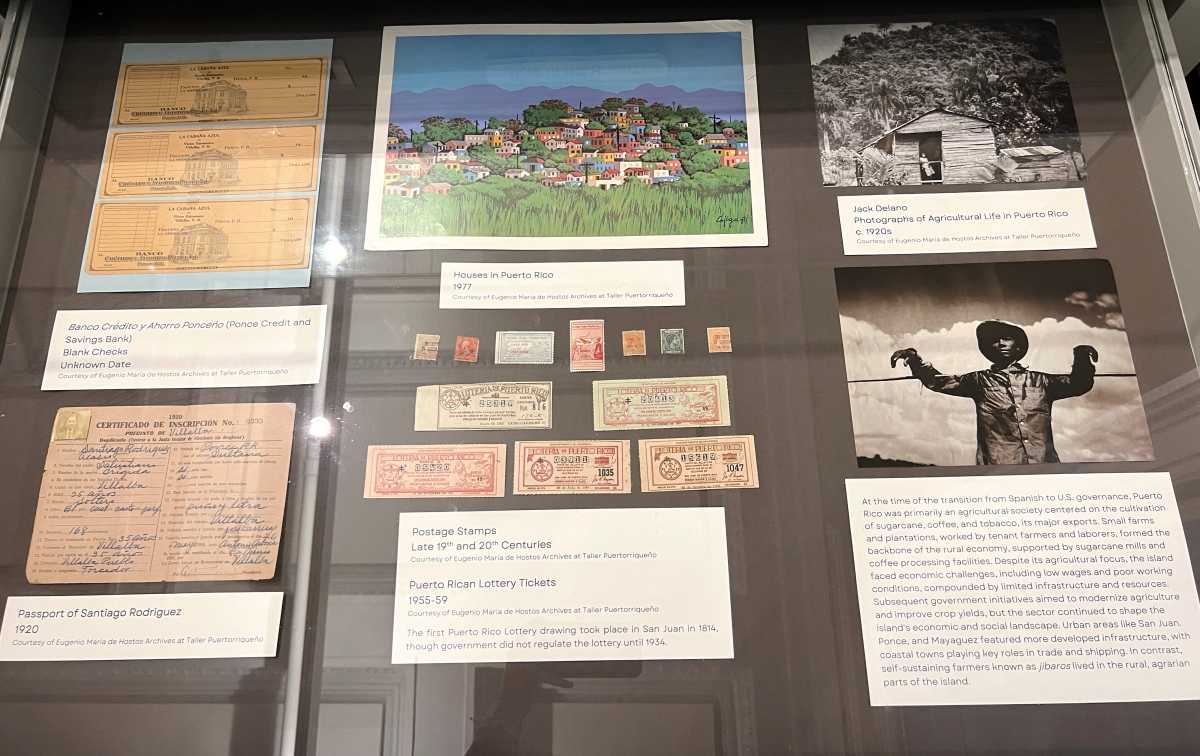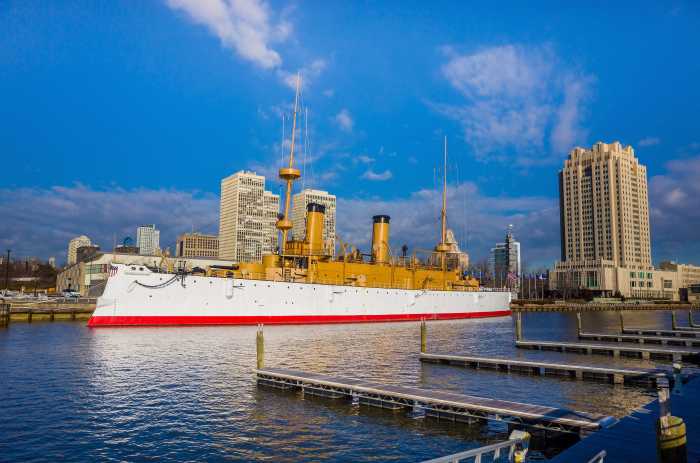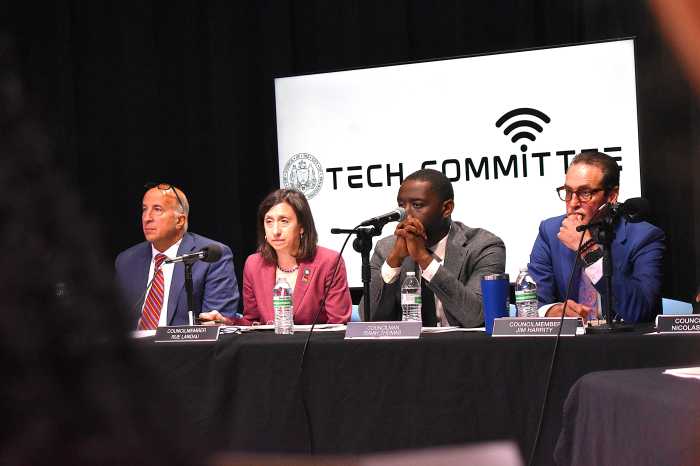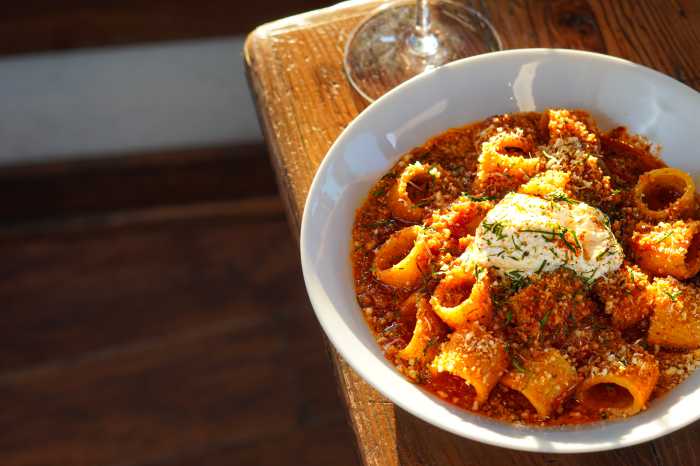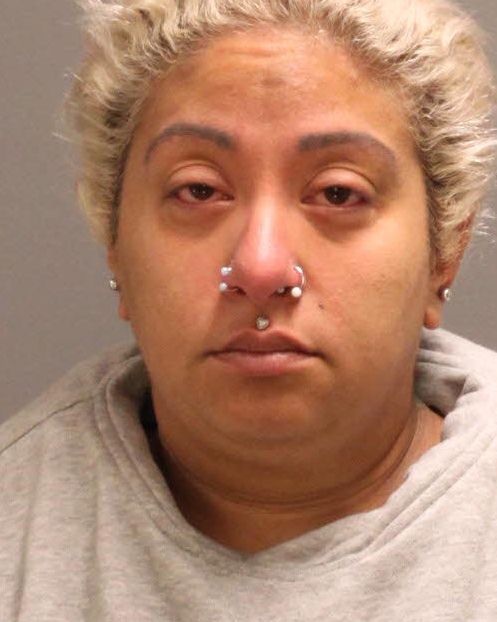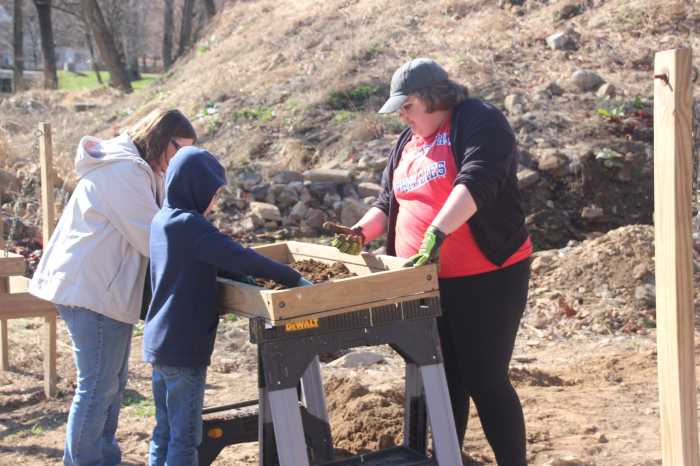Philadelphia’s Puerto Rican community has deep roots extending back to the late 19th century.
And to celebrate that history, the Historical Society of Pennsylvania has debuted a new exhibition, ‘Uncovering & Preserving Puerto Rican Stories.’ On view now through Oct. 11, the exhibition is a part of HSP’s 200th anniversary celebration.
In collaboration with the Taller Puertorriqueno, a community based cultural organization, the exhibit celebrates boricua culture, community and identity by pulling archives from more than 65 interviews collected from Puerto Rican Philadelphians as part of its 1970s oral history project, Batiendo La Olla or ‘Stirring the Pot.’ According to organizers, the title reflects the project’s goal of blending diverse narratives to deepen understanding of the Puerto Rican community’s history.
Throughout the exhibit, one can investigate themes of migration and community, culture and identity, and preservation of memory. Produced from interviews that document Puerto Rican migration to Philadelphia, the exhibition compares generational value and life experiences, and provides an opportunity for reflection.
Let’s uncover history.
Migration to Philadelphia occurred gradually in the early 20th century but increased after World War II, with many settling in Southwark, Northern Liberties and Spring Garden neighborhoods.
The 1880 census records one of Philadelphia’s earliest Puerto Ricans: Francis Aguilar, a cigar broker who immigrated to South Philadelphia in the 1870s. Similar to Aguilar, early settlers often worked in the cigar industry.
Work and trade opportunities
The relationship between Puerto Rico and Philadelphia dates as far back as the early 19th century. Merchants traveled to the island to purchase sugar, tobacco, coffee, cotton, rum, fruit, wood, and leather. Puerto Rican goods exported to Philadelphia were then sold at markets on Walnut and High (now Market) streets.
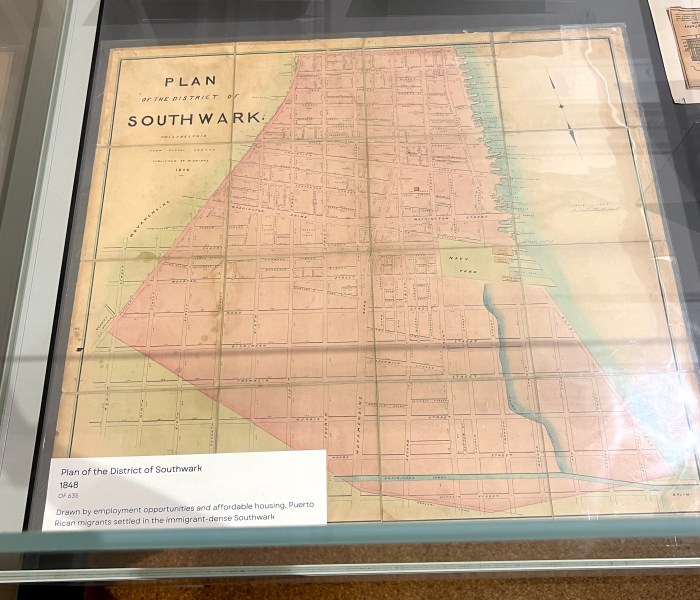
Early settlers often worked in the cigar industry, a suitable transition for those with experience in tobacco production. Puerto Ricans found employment in the city’s cigar factories including Bayuk Brothers and Otto Eisenlohr & Bros. These laborers rolled, sorted, packed and inspected the cigars.
In the early 20th century, Philadelphia’s sugar industry thrived, with major plants like the Pennsylvania Sugar Refinery transforming raw sugar into granulated sugar and employing many workers who brought valuable experience from the island’s sugar production.
While facing discrimination that relegated them to lower paying jobs, men typically worked in service and manufacturing, while women worked in garment production. Philadelphia’s garment industry provided abundant employment throughout Kensington and Spring Garden. Snelleburg’s Department Store had its own garment factory at Broad and Wallace Streets, where many women were employed.
Baldwin Locomotive Works actively recruited workers to address labor shortages and meet production demands, taking on various roles within the manufacturing and assembly process.
The Citizens’ Permanent Relief Committee, a Philadelphia-based philanthropic group, provided American forces with food, medicine, clothing and equipment during the occupation of Puerto Rico. They sent supplies such as mosquito nets and quinine, used to treat malaria.
Music and arts
For more than 50 years, Taller Puertorriqueño has utilized arts and cultural programs to foster ethnic pride and promote self-sufficiency. Initially established as a screen printing workshop, Taller printed flyers and posters for community organizations and protests, and provided a safe space for local teens to develop their creativity.
The Julia de Burgos Bookstore stands at the sole Spanish/English bookstore in the Philadelphia region. The Eugenio Maria de Hostos Archives serves as a research center, preserving artifacts related to Puerto Rican and Latinx history in the Philadelphia area and nationwide.
In 1979, Taller Puertorriqueño hosted the first Feria del Barrio in North Philadelphia. Now in its 40th year, Feria del Barrio is the largest festival in Philadelphia showcased by Asociación de Puertorriqueños en Marcha (APM), Congreso de Latino Unidos, HACE and Raíces Culturales Latinoamericanas. Dedicated to promoting art, culture, education, health, economic development and community, Feria has increased opportunities for artists, promoted civic engagement, attracted new audiences, and built new relationships with other arts and community organizations.
‘Uncovering & Preserving Puerto Rican Stories’ is on display now through Oct. 11. For more information, visit portal.hsp.org/exhibits
Cultural conversation
The Historical Society of Pennsylvania, in partnership with Taller Puertorriqueño, is hosting award-winning journalist and investigative reporter, Juan González, as its 200th anniversary signature talk for the theme, ‘America’s Promise and Its Many Voices.’ The event will take place on Thursday, Sept. 26, at 6:30 p.m.
González will explore the history of Puerto Rican migration from the island to Pennsylvania, discussing the factors driving the migrations, highlighting personal stories, community impact and more.
This event is offered in a hybrid format—both onsite and virtual tickets are available. Onsite tickets include admission to the talk, a reception afterwards, and access to the ‘Uncovering and Preserving Puerto Rican Stories’. Complimentary tickets can be provided to current secondary, undergraduate and graduate students by emailing programs@hsp.org; include where you are enrolled as a student and in what program.



